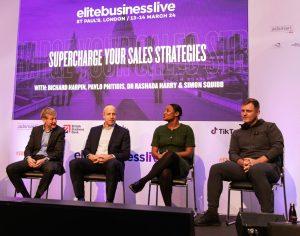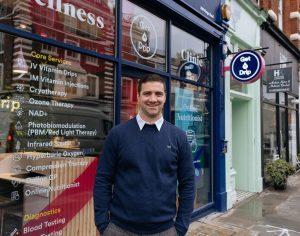Tremors are still being felt in the tech world following Facebook’s $19bn acquisition of mobile messaging service WhatsApp. It was the social media giant’s biggest purchase to-date – and by some distance; photo-sharing platform Instagram was snapped up for a comparably paltry $1bn in 2012. Understandably, entrepreneurs and investors have spent the last few weeks trying to make sense of the deal, not least because Facebook suggested it wouldn’t look to introduce advertising to the messaging app. With a WhatsApp subscription free for the first year and less than $1 per annum thereafter, the scepticism appeared well-founded. Yet, whilst many queried how Facebook could hope to see a return on its investment, others claimed it was just marking its territory.
Nevertheless, the news has left us folks at Elite Business wondering if the UK will ever have what it takes to spawn a WhatsApp. Although Google may have flexed its financial muscle in the British tech start-up scene recently, it has done so at nowhere near the same level as Zuckerberg and Co. Of course, it would be brave indeed for a fledgling tech start-up to turn down a cool £300m from one of these tech mammoths.
But is it beyond the realms of possibility that we could ever see a firm on these shores bought for billions, rather than millions?
 ‘Not this year but maybe in five years’ time’, says Russ Shaw, founder of Tech London Advocates
‘Not this year but maybe in five years’ time’, says Russ Shaw, founder of Tech London Advocates
There is absolutely no reason why the next WhatsApp shouldn’t be built in the UK. This year alone, the acquisitions of DeepMind and Natural Motion saw $1bn invested in UK tech start-ups and that is a fraction of the value of London’s technology sector.
Direct comparisons between the UK and Silicon Valley are not always helpful. This is not an excuse, just a fact. Silicon Valley has been creating technology companies for 75 years and they are very, very good at attracting investment. In the UK, our potential for future investment is just as large, but we are much younger so it will take time.
There are technology companies in London right now which could go on to be incredible success stories. But we have some significant obstacles to overcome before the landscape becomes suitable for the sort of rapid growth and innovation that leads to billion pound acquisitions. Getting the right people in the country is crucial. Jan Koum was able to take his skills to the US and we need to ensure the free movement of talent. Education is also crucial – we have to teach people the basic technology skills required to turn ideas into profitable businesses.
$19bn will not be invested in a UK tech company this year. But in five years’ time, when our tech sector has gained momentum and confidence, we should all anticipate the moment when Britain creates tech companies that can attract the highest investments.
 ‘Honestly speaking, I don’t think it ever will‘, says James Olden, founder of TopTradr
‘Honestly speaking, I don’t think it ever will‘, says James Olden, founder of TopTradr
Arguably anyone with a unique concept, brilliantly executed, with a strong unrelenting proposition and determined founders could succeed. But honestly speaking, I don’t think we ever will.
The issue is the lack of support for UK start-up culture; investors simply don’t get it. They are still trying to apply bank manager multiples and scream ‘bubble’ because their brains can’t cope with the maths. They would rather buy a commercial building and sell it to a pension firm than invest in a promising start-up.
By the time you’ve managed to scrape together some seed capital (you’re unlikely to get help from a bank) and get in front of a VC – at which point you will likely be bleeding from server costs and desperate for money – you will find the door closed, unless you have significant traction and proven concept. Alternatively, if it’s going really well, some big American company will swallow it up like a gas giant, close it down or subsume it into their product mix.
The idea a UK start-up will have the guts to hold out when offered anything less than tens of billions is therefore pretty unlikely. Me? I’ll take a few hundred million and a move to San Francisco, thanks. If you ask most founders after two months of solid rain, I think they’d join me. ![]()
Share via:


















































